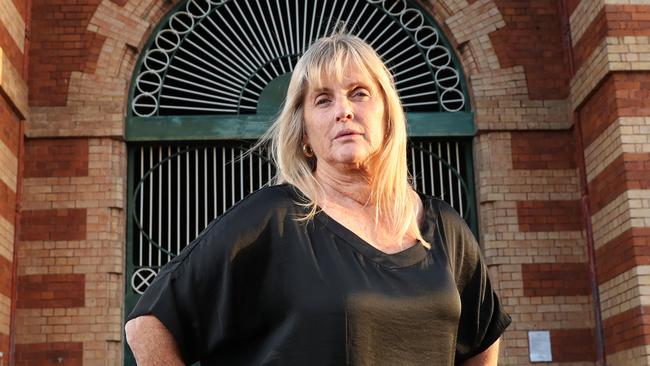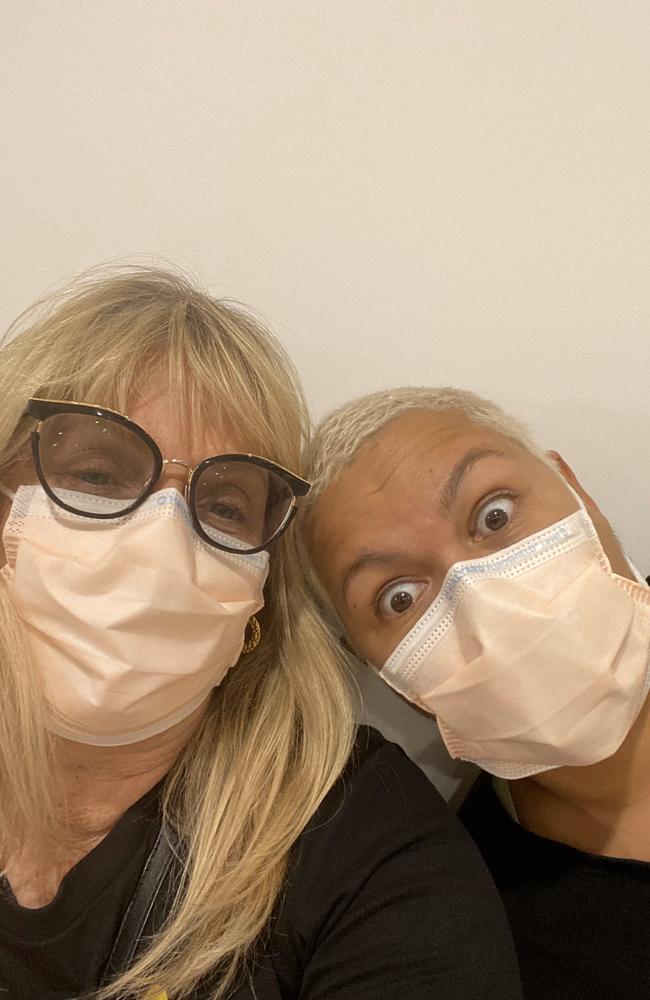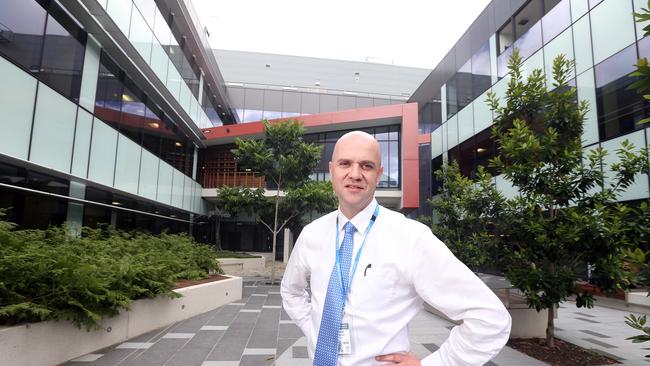Queensland’s bizarre cases add to the many mysteries of COVID-19
Debbie Kilroy is living in coronavirus hell. She has tested positive to COVID-19 for 100 days straight and is experiencing bizarre and painful symptoms, such as swollen eyes. But she is not alone as mysteries continue to confound health experts.

QLD Coronavirus News
Don't miss out on the headlines from QLD Coronavirus News. Followed categories will be added to My News.
BRISBANE lawyer Debbie Kilroy was hospitalised with COVID-19 in March. It’s been 100 days since diagnosis and she has had 10 swab tests in that time. Each one has turned up positive.
“Even though I’m testing positive doctors said I was not infectious. I was petrified of going back to my family as I think there is so much the doctors don’t yet know,” she said.
Coronavirus symptoms: How likely are you to die from COVID-19
‘We opened too soon’: US struggles under virus surge
Debbie Kilroy develops symptoms days after positive coronavirus test

“I have serious ongoing health problems — some weird like seriously swollen eyes.
“I have tightness in the chest, headaches, body aches, total exhaustion and there are problems with my adrenal glands.
“Health departments need to follow up cases for ongoing problems.
“It feels like if you don’t die then you are just sent off on your own,” she said.

It’s been months since COVID-19 hit with little warning and unprecedented force but still there are mysteries surrounding the deadly virus that have stumped even the most experienced infectious disease experts.
Why do some people end up on life support and others are asymptomatic? Why do some only turn up positive after the 14 days quarantine incubation period? How can someone test positive for 100 days? How can you test positive for the virus but not be infectious? Could this virus mutate and cause more havoc? Why are children more protected? Can you get the virus twice?
Only patience and time will bring the answers.

Queensland’s Dr John Gerrard is an infectious disease expert who has travelled the world as an expert in his field and was hands on in the ebola outbreak in Africa. He was the first doctor in the state to treat positive patients.
Dr Gerrard told The Sunday Mail that it’s still unclear why the virus impacts patients so differently.
“Most people will have mild symptoms of a cough and fever that will last a few days. Some will develop viral pneumonia and be breathless, some could be sick for weeks and there will be those that end up on life support,” he said.
Last week the case of a Sunshine Coast man had Queenslanders scratching their heads. He was overseas came back and went into quarantine but only tested positive after he returned to work.
“I do not know the details of the case but it is possible that this man had “viral RNA litter” detected. Sometimes litter remains in very small quantities that will not be detected on every swab. It can be very difficult to distinguish recent infection from the detection of this litter,” Dr Gerrard said.
Dr Gerrard said the majority of people will recover without long-term effects and doctors have seen only a small number with residual lung injury.
The doctor also said that it is likely people who get the virus will develop some immunity.
“It is conceivable that immunity could wane over time and that variant strains could develop in which case milder infection might occur. It seems unlikely that serious infection could occur repeatedly,” he said.
As for the reasons children are less impacted the expert said that is not yet clear.
“There are a number of theories including changes in the receptor target for the virus that occur with age and previous exposure to similar viruses,” he said.



